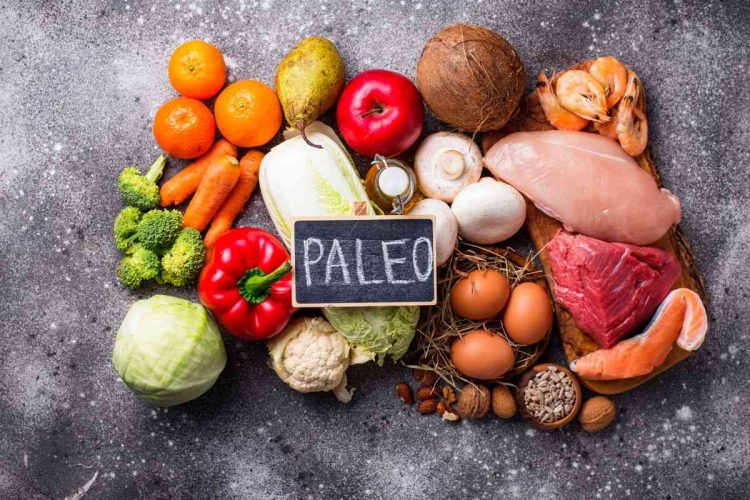The Paleo Diet, also known as the “Caveman Diet” or “Stone Age Diet,” is a dietary approach that mimics the eating habits of our ancient ancestors from the Paleolithic era. It focuses on consuming foods that our hunter-gatherer ancestors would have eaten, such as lean meats, fish, fruits, vegetables, nuts, and seeds. The diet excludes modern processed foods, dairy products, grains, legumes, and refined sugars.
History of the Paleo Diet
Dr. Loren Cordain, a nutrition specialist, popularised the Paleo Diet in the 1970s. He suggested that our bodies are better adapted to the foods available to early people. Following this diet could improve overall health. Over time, this gained popularity, with many proponents praising its potential benefits for weight loss and general well-being.
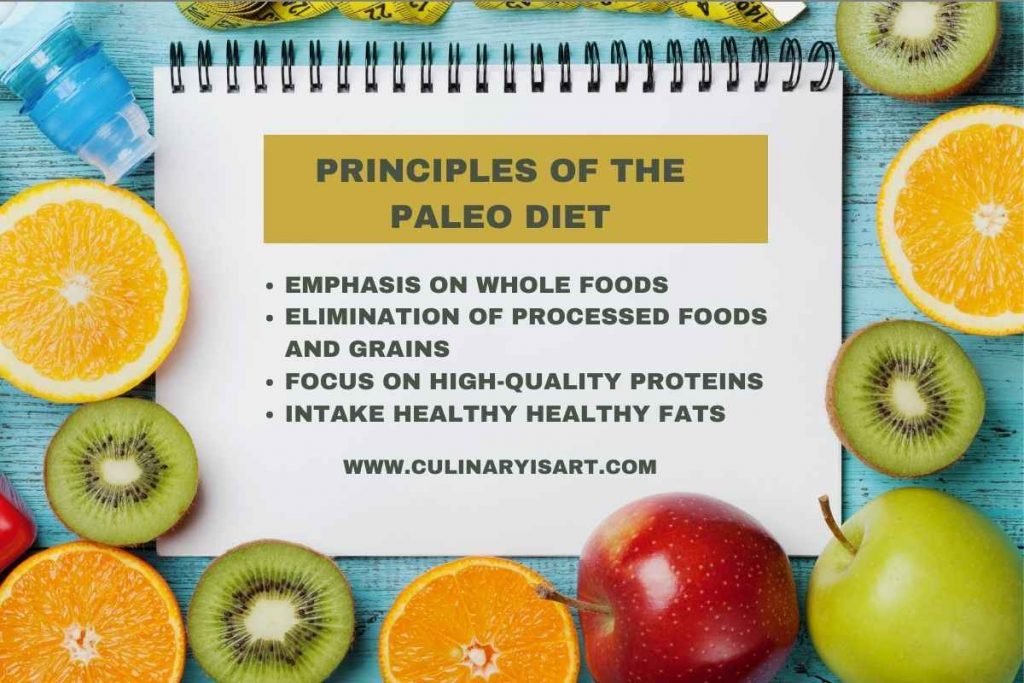
Principles of the Paleo Diet
🍎🥕Emphasis on Whole Foods: This diet prioritizes whole, unprocessed foods over packaged and refined options. It encourages the consumption of fresh fruits, vegetables, lean meats, and nuts, which provide essential nutrients and avoid artificial additives.
🚫🍞Elimination of Processed Foods and Grains: Processed foods and grains are not part of our ancestors’ diets. Because of this, the Paleo Diet tells you to stay away from prepared foods. This exclusion includes foods like refined sugars, bread, pasta, and packaged snacks.
🍗Focus on High-Quality Proteins: Proteins play a crucial role in this Diet, and the focus is on consuming lean sources such as grass-fed meats, free-range poultry, and wild-caught fish, providing essential amino acids for the body.
🥑🥥Importance of Healthy Fats: The Paleo Diet says that healthy fats are good for you. You should eat things like avocados, olive oil, coconut oil, and nuts because they are good for your heart and general health.
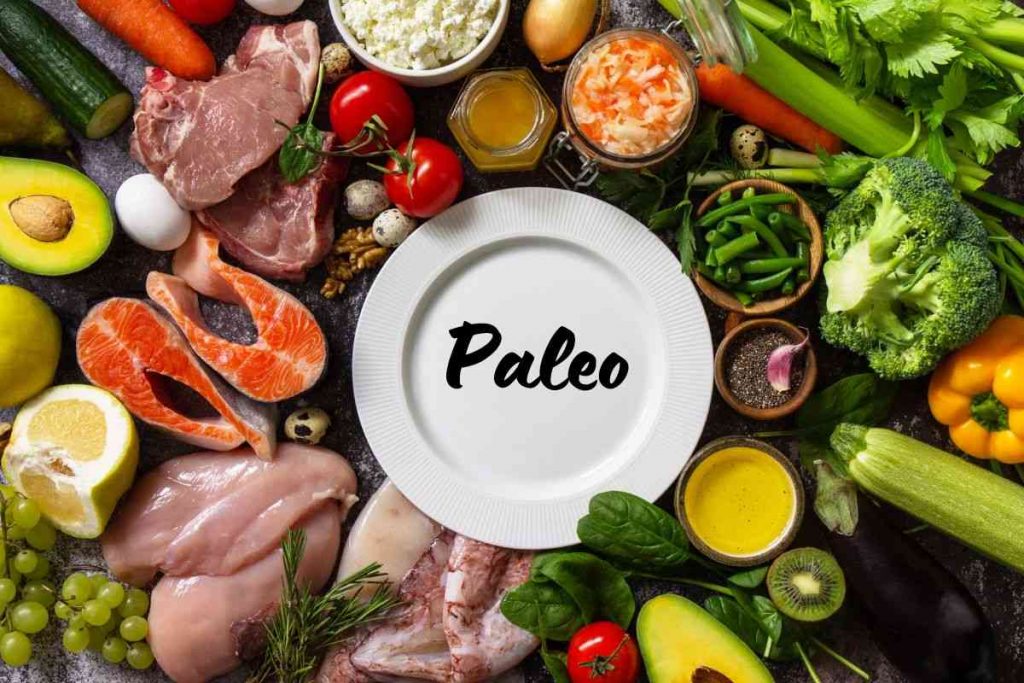
How Does the Paleo Diet Work?
This Diet is based on the belief that our bodies are meant for a pre-agricultural diet. It’s like going back to our ancestral food choices to boost our health and well-being. So, we cut out processed foods and grains and go for whole, nutrient-dense options instead. This way, the diet supports our body’s natural processes, and we feel so much better!
Impact on the Human Body
You know, this diet has a significant impact on our bodies. It does wonders for our metabolism and digestion, which is great. Plus, it’s all about whole foods, so we get all those essential vitamins and minerals we need. Oh, and the high-protein content is fantastic for maintaining and repairing our muscles. But wait, there’s more! Healthy fats are also included, which support brain function and help keep our hormones balanced. Pretty amazing, right?
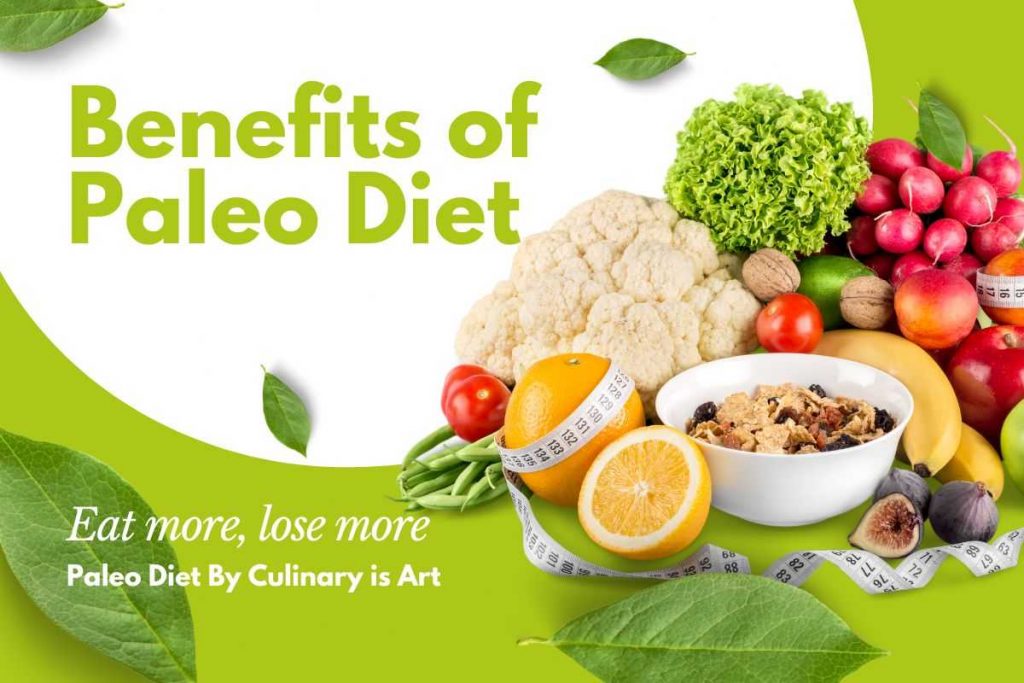
Benefits of the Paleo Diet
This diet may provide a number of possible benefits, including:
⚖️Weight Loss and Management: The Paleo Diet aids weight loss and management by focusing on nutrient-dense foods. It eliminates processed sugars and refined carbs, benefiting many people in weight management.
⚡️Improved Energy Levels: The Paleo Diet emphasizes natural, unprocessed foods for sustained energy throughout the day. It reduces energy crashes and enhances overall vitality with its focus on wholesome foods.
🩸Better Blood Sugar Regulation: The elimination of refined sugars and grains can lead to improved blood sugar regulation. It may benefit individuals with diabetes or insulin sensitivity.
🌱🥦Enhanced Digestion: The high fiber content from fruits and vegetables can promote healthy digestion. It may help with gastrointestinal issues for some individuals.
🔥Reduced Inflammation: The Paleo Diet’s emphasis is on anti-inflammatory foods like fruits and vegetables. Healthy fats may help reduce inflammation in the body, potentially benefiting various health conditions.
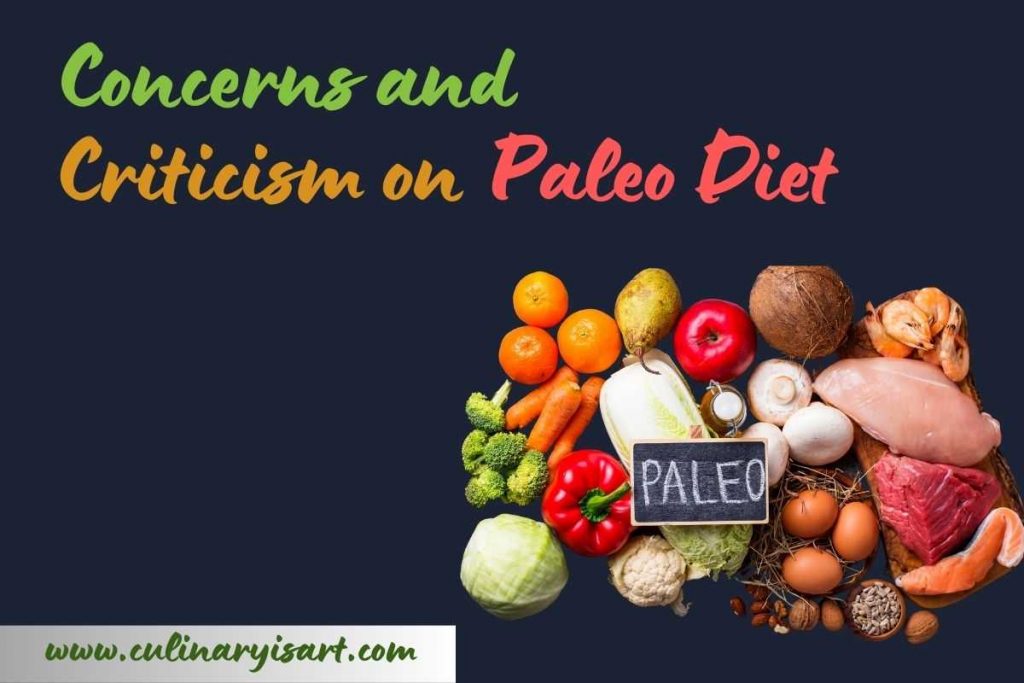
Concerns and Criticisms
While this diet has its supporters, it also faces some concerns and criticisms:
⚠️Nutritional Imbalance: Critics argue that the strict exclusion of certain food groups like grains and legumes could lead to nutritional imbalances, as these foods can provide essential vitamins and minerals.
💸🌍Sustainability and Cost: The Paleo Diet’s reliance on organic and grass-fed sources may be expensive for some individuals, and the environmental sustainability of such practices has been debated.
🏙️⏰Adaptation to Modern Lifestyles: For some people, the Paleo Diet can be challenging to maintain in modern times, especially in a fast-paced society with limited access to certain foods.
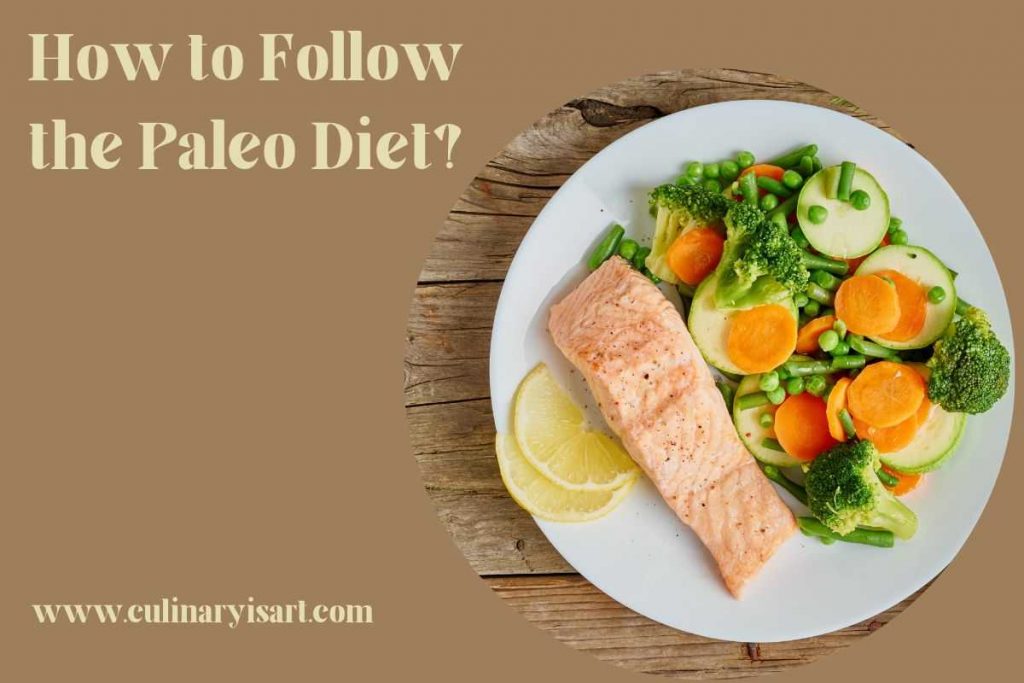
How to Follow the Paleo Diet?
If you’re thinking of trying this diet, here are some guidelines to get you started:
✔️🍽️Approved Foods List: Focus on whole foods like lean meats, fish, eggs, fruits, vegetables, nuts, and seeds. Avoid processed foods, dairy, grains, legumes, and refined sugars.
🍴📅Sample Meal Plan: Plan your meals around the approved foods, incorporating a balance of proteins, healthy fats, and carbohydrates from fruits and vegetables.
🍽️✈️Tips for Dining Out and Traveling: When dining out or traveling, look for Paleo-friendly options like salads, grilled meats, and vegetable dishes to stay on track.
Frequently Asked Questions
While the Paleo Diet can be beneficial for some individuals, it may not be suitable for everyone, particularly those with specific dietary restrictions or medical conditions. Consulting with a healthcare professional is essential before starting any new diet.
Some people have reported improvements in conditions like weight management, blood sugar regulation, and inflammation while following the Paleo Diet. However, individual results may vary.
The Paleo Diet excludes processed foods, dairy products, grains, legumes, and refined sugars. Foods like bread, pasta, beans, and most desserts are not part of the diet.
The time it takes to see results on the Paleo Diet can vary depending on factors like individual metabolism, activity level, and adherence to the diet. Some people may experience changes in a few weeks, while others may take longer.
While some studies have explored the potential benefits of the Paleo Diet, more research is needed to fully understand its long-term effects and how it compares to other dietary approaches. The scientific community continues to investigate its impact on health and well-being.
Victoria Cornell is an experienced entrepreneur and blogger. She loves to write about a variation of topics including, motherhood, recipes and mindset and manifestation!
